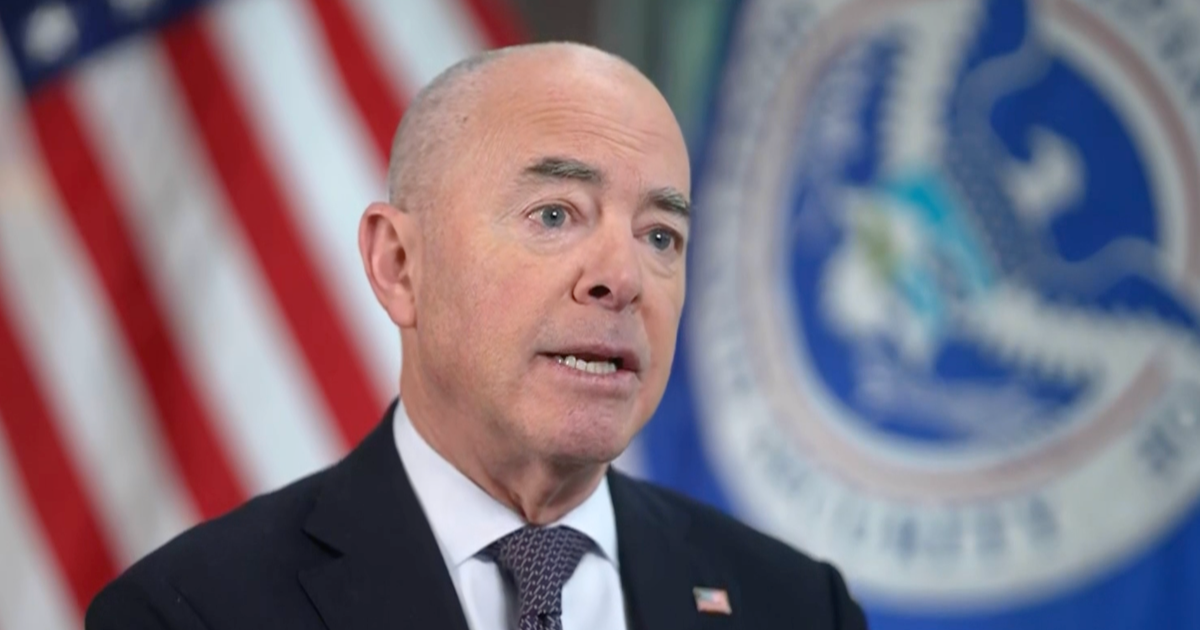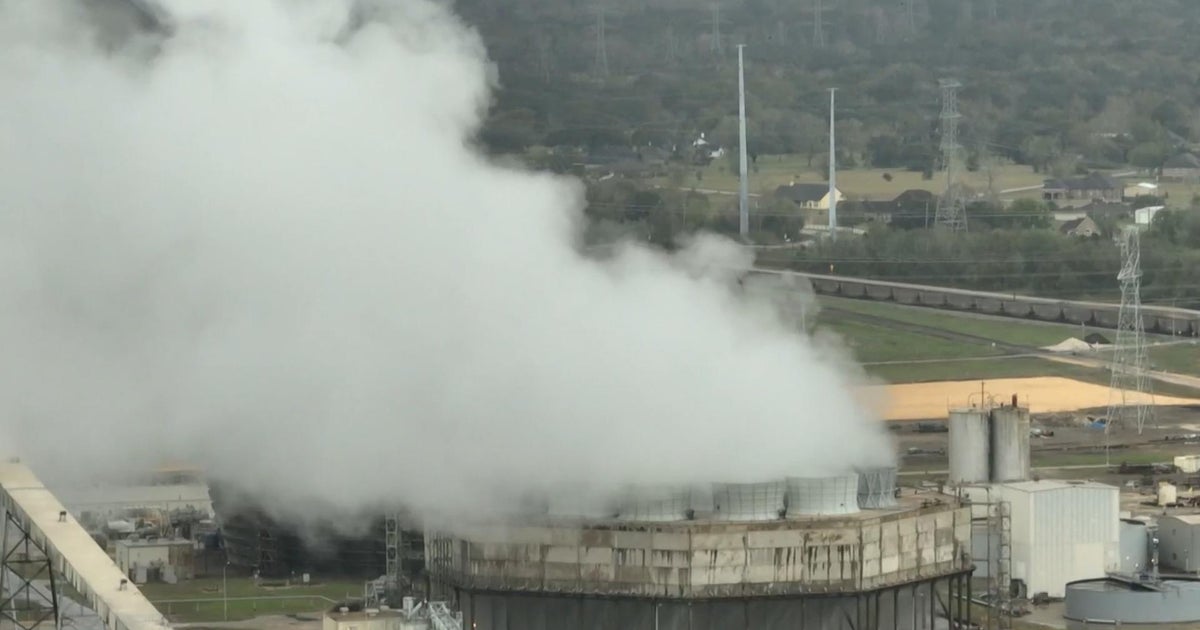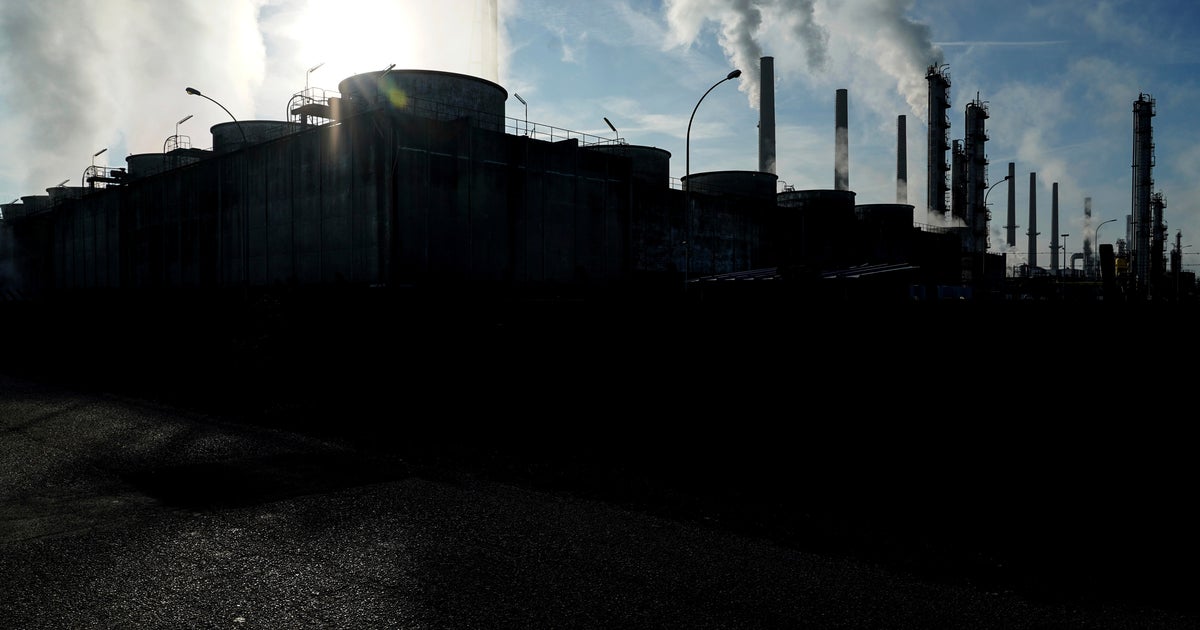CBS News
EPA to hit oil and gas companies with “methane fee” for drilling waste — but will it last?

Washington — Oil and natural gas companies for the first time will have to pay a federal fee if they emit dangerous methane above certain levels under a rule being made final by the Biden administration.
The Environmental Protection Agency rule follows through on a directive from Congress included in the 2022 climate law. The new fee is intended to encourage industry to adopt best practices that reduce emissions of methane – the primary component of natural gas – and thereby avoid paying.
Methane is a climate “super pollutant” that is far more potent in the short term than carbon dioxide and is responsible for about one-third of greenhouse gas emissions. The oil and natural gas sector is the largest industrial source of methane emissions in the United States, and advocates say reduction of methane emissions is a crucial way to slow climate change.
The rule, set to be announced Tuesday at an international climate conference in Azerbaijan, comes hours after President-elect Donald Trump named former New York congressman Lee Zeldin to head the agency in Trump’s second term. If confirmed by the Senate, Zeldin is expected to move to reverse or loosen dozens of environmental regulations approved under President Biden as Trump seeks to establish U.S. “energy dominance″ worldwide.
Trump is likely to target the methane fee amid a flurry of expected actions he has promised to deregulate the oil and gas industry.
As outlined by the EPA, excess methane produced in 2024 could result in a fee of $900 per ton, with fees rising to $1,200 per ton in 2025 and $1,500 per ton by 2026. Industry groups are likely to challenge the rule, including any effort to impose a retroactive fee.
The rule wouldn’t become final until early next year, following publication in the Federal Register.
EPA Administrator Michael Regan said in a statement that the rule will work in tandem with a new EPA rule on methane emissions imposed this year. The rule targets the U.S. oil and natural gas industry for its role in global warming as Mr. Biden seeks to secure his legacy on fighting climate change.
The fee, formally known as the Waste Emissions Charge, will encourage early deployment of available technologies to reduce methane emissions and other harmful air pollutants, Regan said. The fee “is the latest in a series of actions under President Biden’s methane strategy to improve efficiency in the oil and gas sector, support American jobs, protect clean air and reinforce U.S. leadership on the global stage,” he said.
Industry groups and Republican-led states have challenged the earlier methane rule in court, but lost a bid for the Supreme Court to block the rule while the case continues before lower-level judges.
Opponents argue that the EPA overstepped its authority and set unattainable standards with the new regulations. The EPA, though, said the rules are squarely within its legal responsibilities and would protect the public.
Many large oil and gas companies already meet or exceed methane-performance levels set by Congress under the climate law, meaning they are unlikely to be forced to pay the new fee, Regan and other officials said.
Even so, the EPA estimates that the rule will result in cumulative emissions reductions of 1.2 million metric tons of methane (the equivalent of 34 million metric tons of carbon-dioxide) through 2035. That figure is similar to clean-air gains from taking nearly 8 million gas-powered cars off the road for a year, the EPA said. Cumulative climate benefits could total as much $2 billion, the agency said.
Like the earlier methane rule, the new fee faces a near-certain legal challenge from industry groups. The American Petroleum Institute, the oil and gas industry’s largest lobbying group, called a fee proposed earlier this year a “punitive tax increase” that “undermines America’s energy advantage.”
The API said it looks forward to working with Congress to repeal the “misguided new tax on American energy.”
Environmental groups, for their part, have hailed the impending methane fee, saying oil and gas companies should be held accountable for pollution that contributes to global warming. Oil and gas companies routinely calculate that it’s cheaper to waste methane through flaring and other techniques than to make necessary upgrades to prevent leaks, they said.
The EPA said it expects that over time, fewer oil and gas companies will be charged for excess methane as they reduce emissions in compliance with the rule.
CBS News
Mayorkas warns of “serious” consequences for Homeland Security if government shuts down

Washington — Homeland Security Secretary Alejandro Mayorkas warned Friday that his agency could suffer “serious” consequences if Congress fails to pass legislation funding federal agencies and averting a government shutdown in the next few hours.
In an interview with “Face the Nation with Margaret Brennan,” Mayorkas said many components of the Department of Homeland Security would be affected by a lapse in funding, including the Transportation Security Administration (TSA), FEMA and Border Patrol.
The homeland security chief added that a failure by lawmakers to pass a stopgap spending bill before Saturday would also mean staff at the Countering Weapons of Mass Destruction Office would be redirected to other parts of his department.
“The implications and the consequences are serious, especially when it comes to Homeland Security,” Mayorkas said.
He urged Congress to approve legislation that would keep government agencies operating before midnight, when a short-term extension enacted in September will expire.
House Speaker Mike Johnson unveiled earlier this week a legislative package negotiated with Democrats that would have extended government funding through March 14, provided more than $100 billion in disaster aid for states impacted by extreme weather events, and given members of Congress a pay raise, among other provisions.
But the proposal was swiftly met with pushback from some conservative Republicans, who balked at the size and scope of the 1,550 page deal. Crucially, it was also criticized by billionaire Elon Musk, an ally of President-elect Donald Trump, and then by the incoming president himself.
Trump and Musk torpedoed the package, with Musk taking to X, the social media platform he owns, to lambaste provisions of it. The president-elect further upended negotiations over a funding deal when he called on Republicans to address the debt limit — which is set to be reinstated Jan. 1 — in their plan.
Johnson unveiled a second measure Thursday, which would have funded the government for three months, suspended the nation’s borrowing limit until January 2027 and provided $110 billion in disaster relief. The more tailored legislation, which Trump backed, also included health care provisions, a one-year renewal of the farm bill and funding for rebuilding the Francis Scott Key Bridge in Baltimore, which collapsed in March.
But that package failed to pass the House with the necessary support after it was opposed by most Democrats and more than three dozen Republicans.
That defeat sent Johnson and GOP leaders back to the drawing board, with the prospect of a shutdown rising with each passing hour. Republicans are now discussing voting on three provisions of the package individually, sources familiar with the matter told CBS News: a clean extension of government funding; billions of dollars in disaster aid; and assistance to farmers.
Mayorkas told “Face the Nation” that a shutdown just before the holidays — when tens of millions of Americans are traveling — would mean TSA employees at airports throughout the country would be forced to work without pay. However, they would likely receive backpay after a shutdown ends, as has happened before after previous funding lapses.
“We’re going to have tens of thousands of TSA employees working an incredibly high volume of passenger traffic throughout our airports across the country, and they will be doing so keeping the American public safe without pay,” he said.
The Homeland Security secretary also said those impacted would include U.S. Border Patrol agents stationed along the U.S.-Mexico border.
“There are people in government service who are dedicating their talent and their energy to the well-being of the American people, who rely on their paychecks to make ends meet, and it is the holiday season, after all, but our men and women on the border will be guarding the border of the United States at no pay if funding doesn’t come through,” Mayorkas said.
The $110 billion in disaster assistance that will likely be included in a spending deal includes money for FEMA, which has been responding to the hurricanes that devastated the southeast this fall.
Mayorkas said that inaction by Congress would impact those states hit by the storms, including North Carolina and Florida.
“What FEMA will need to do, another significant impact of the failure to fund the federal government, is they will now need to delay — they’ll put on pause certain contracts, certain projects that are actually repairing communities devastated by extreme weather events, by tornados, by hurricanes, by fires, and that will delay the rebuilding of communities and really delay the ability to deliver for people who have suffered so much,” he said.
Mayorkas said a shutdown occurring over the holidays would force the Department of Homeland Security to “make difficult decisions now to delay projects.”
Lawmakers representing those storm-ravaged states have pushed for disaster relief to be included in any legislative package funding the government.
CBS News
Watch: White House takes questions on looming government shutdown

Watch CBS News
Be the first to know
Get browser notifications for breaking news, live events, and exclusive reporting.
CBS News
What to know about the government shutdown deadline threatening the U.S.

Watch CBS News
Be the first to know
Get browser notifications for breaking news, live events, and exclusive reporting.







